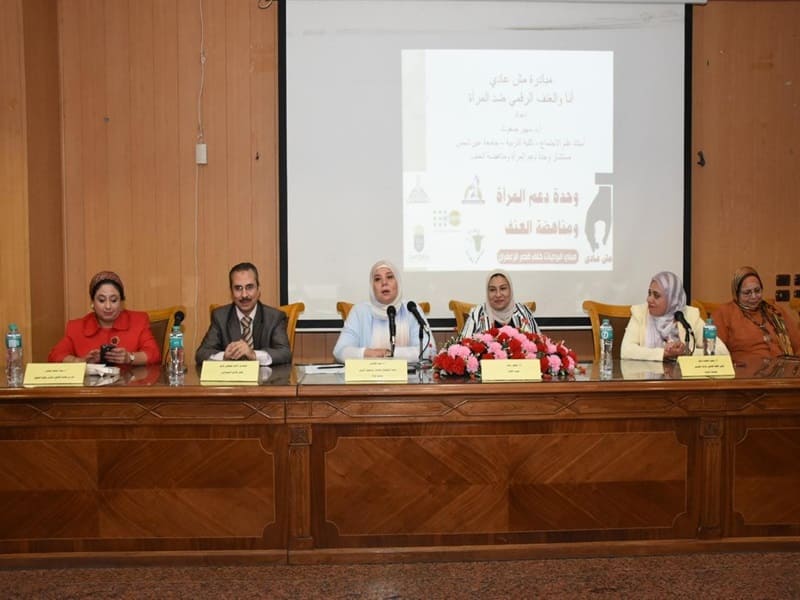The Women Support and Anti-Violence Unit launches the first activities of the awareness initiative against the dangers of digital violence at the Faculty of Al-Alsun
The Community Service and Environmental Development Sector at the Faculty of Languages, Ain Shams University, in cooperation with the Women Support and Anti-Violence Unit at the university, organized the first activities of the awareness initiative against the dangers of digital violence, which was launched by the unit through a symposium entitled "Digital Violence", under the auspices of Prof. Diaa Zain El-Abedeen, President of the University, Prof. Ghada Farouk, Vice President of the University for Community Service and Environmental Development Affairs, Prof. Salwa Rashad, Dean of the Faculty, and under the supervision of Prof. Youmna Safwat, Vice Dean of the Faculty for Community Service and Environmental Development Affairs, Prof. Hend El-Helaly, Director of the Women Support and Anti-Violence Unit at the University.
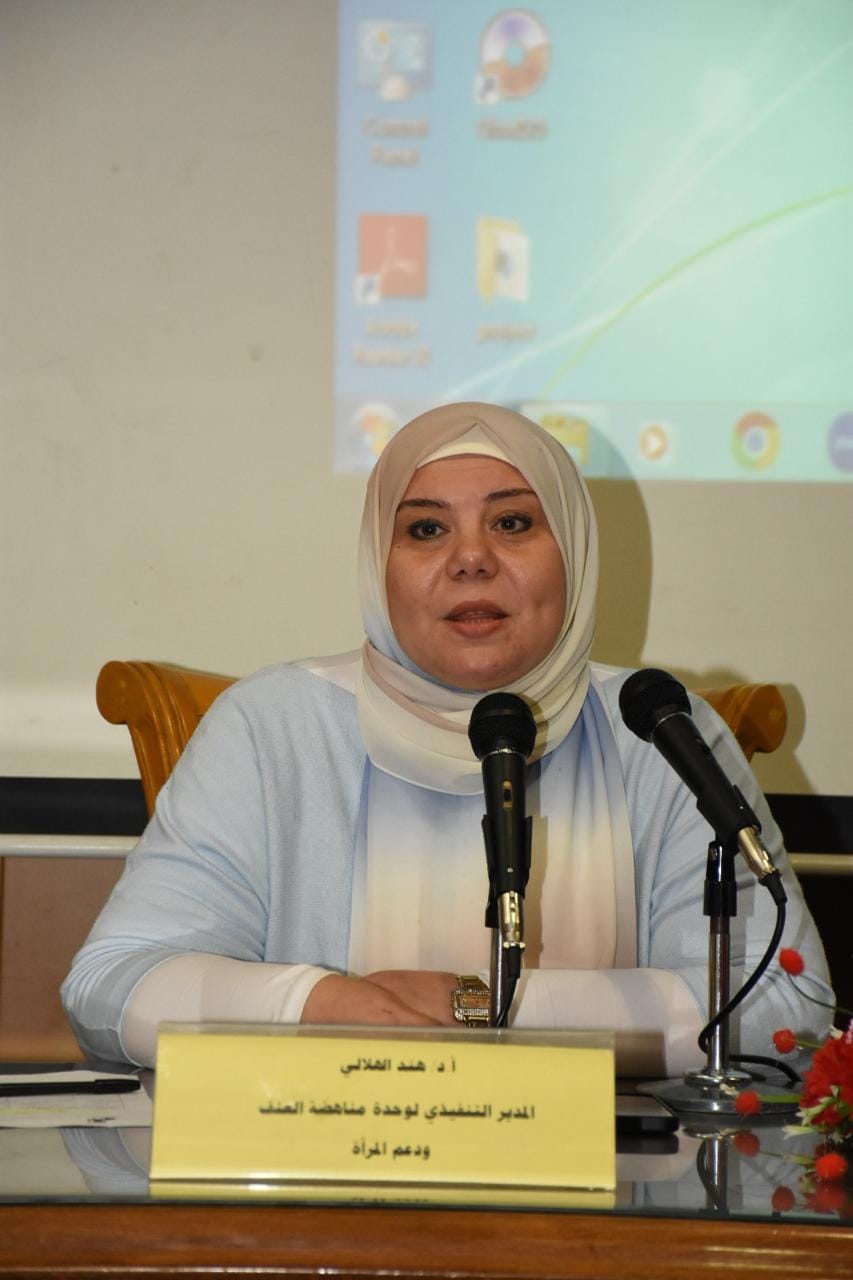 |
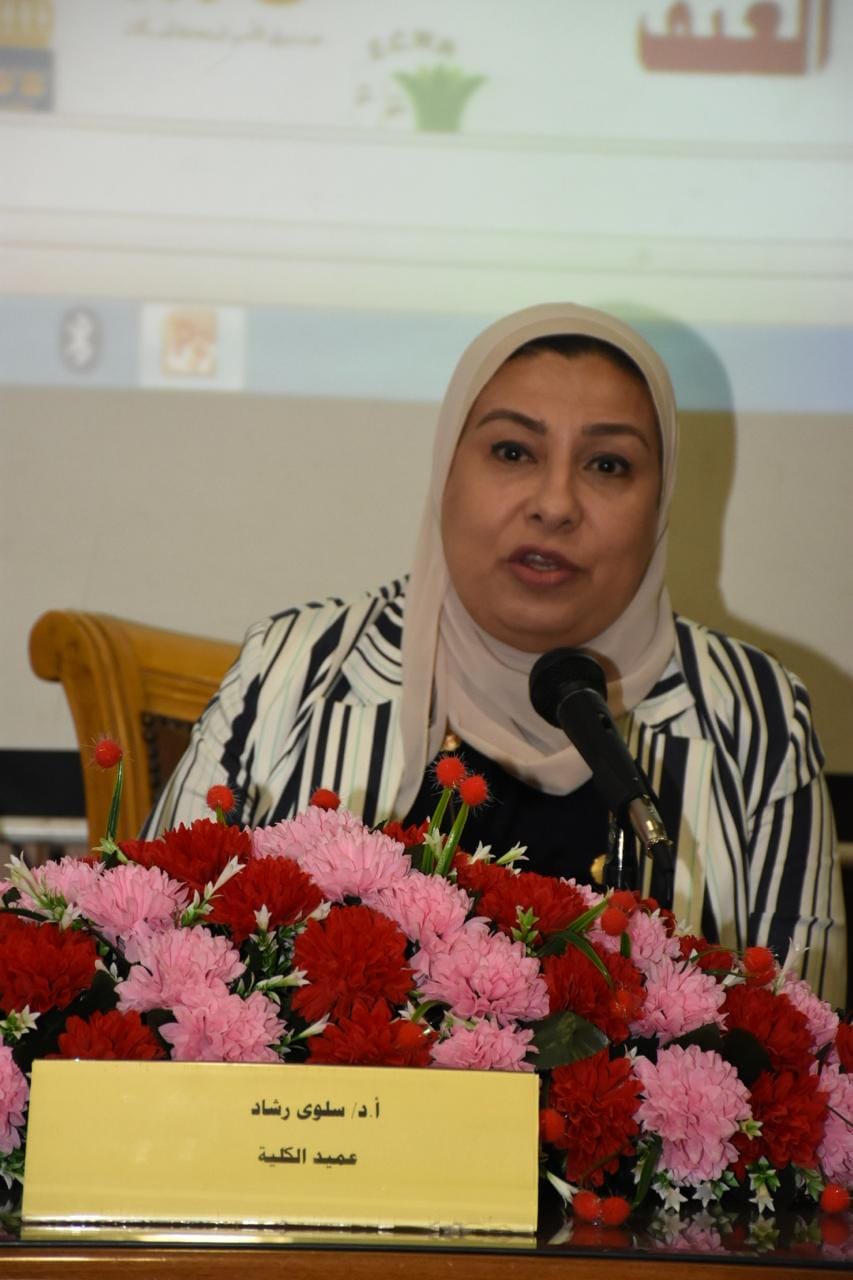 |
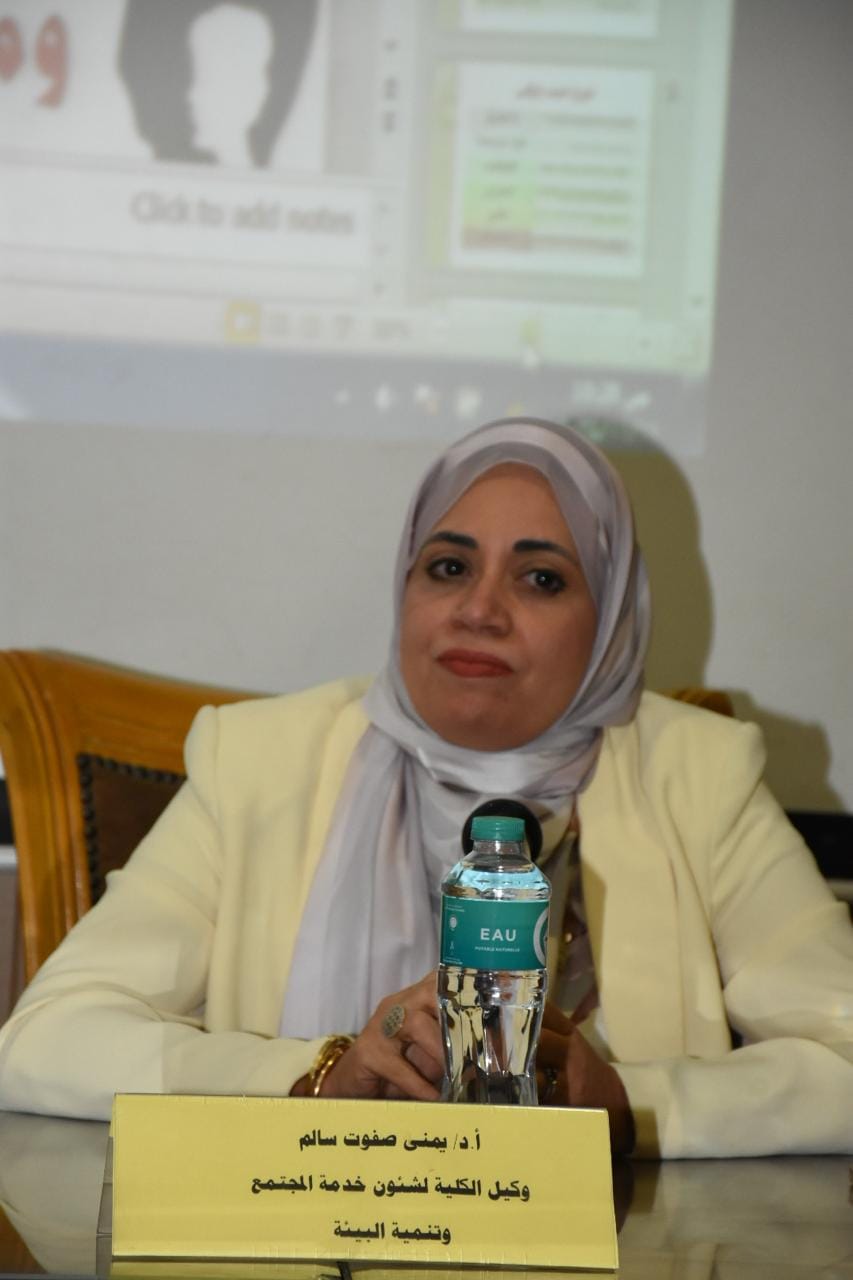 |
||
In her opening speech, Prof. Salwa Rashad, Dean of the Faculty, said that cyber violence has become the topic of the hour, as the use of technology has become linked to people's lives at different stages of life, as well as their various specializations, whether work or study. However, technology has another dark side, as mobile devices today carry all our personal information with all its details, which many commercial entities have become targeting to reach users of their products. Also, any ordinary person who tries to access this personal information certainly intends to use it in a bad way; and plans to put the owner of the information under pressure, whether by using this information and personal photos or even by deleting or destroying them. From that point, cyber security has become one of the most important security measures that any person today seeks to achieve by preserving their personal information from hacking and maintaining their privacy.
She also announced the poetry and short story writing competition launched by the Women's Support and Anti-Violence Unit at the university from the faculty for all male and female students of the university, which aims to submit writings stemming from the campaign's theme.
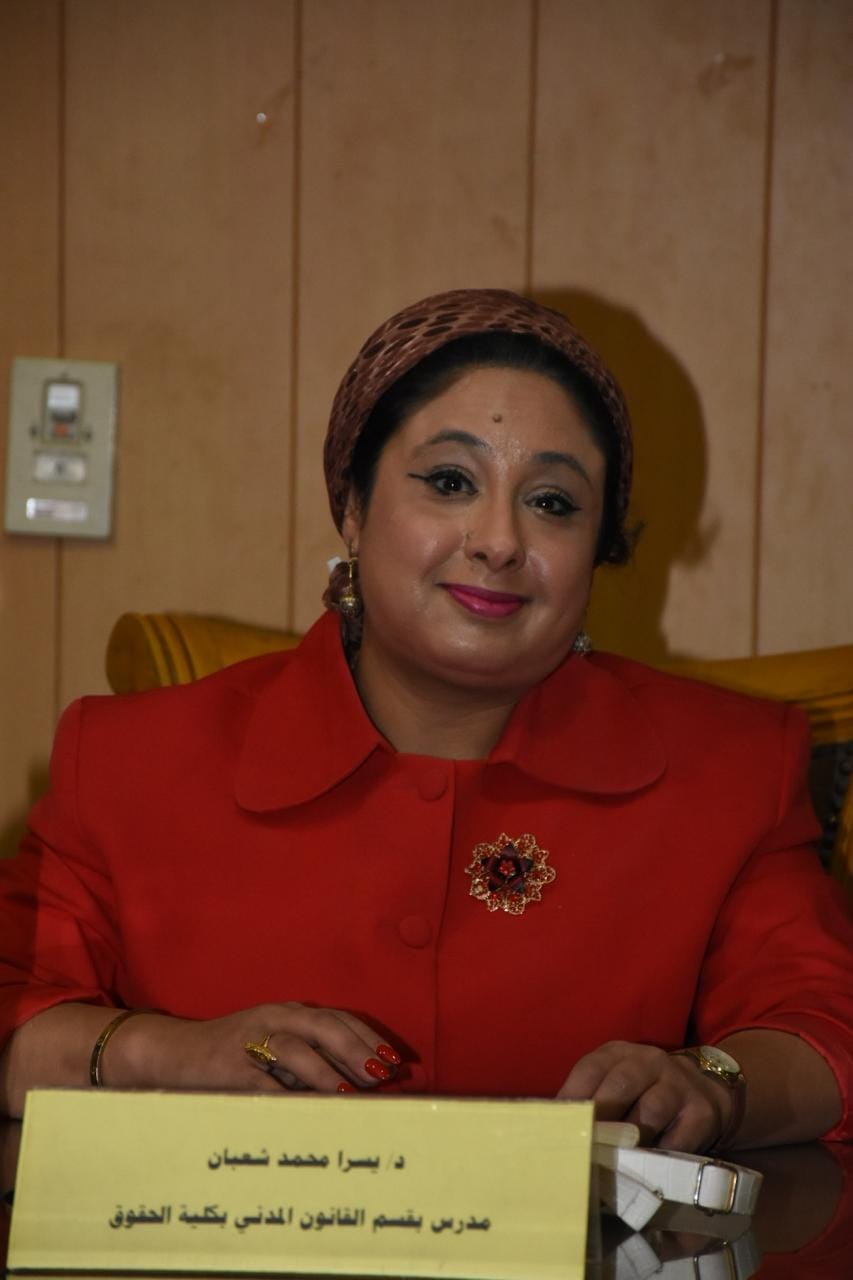 |
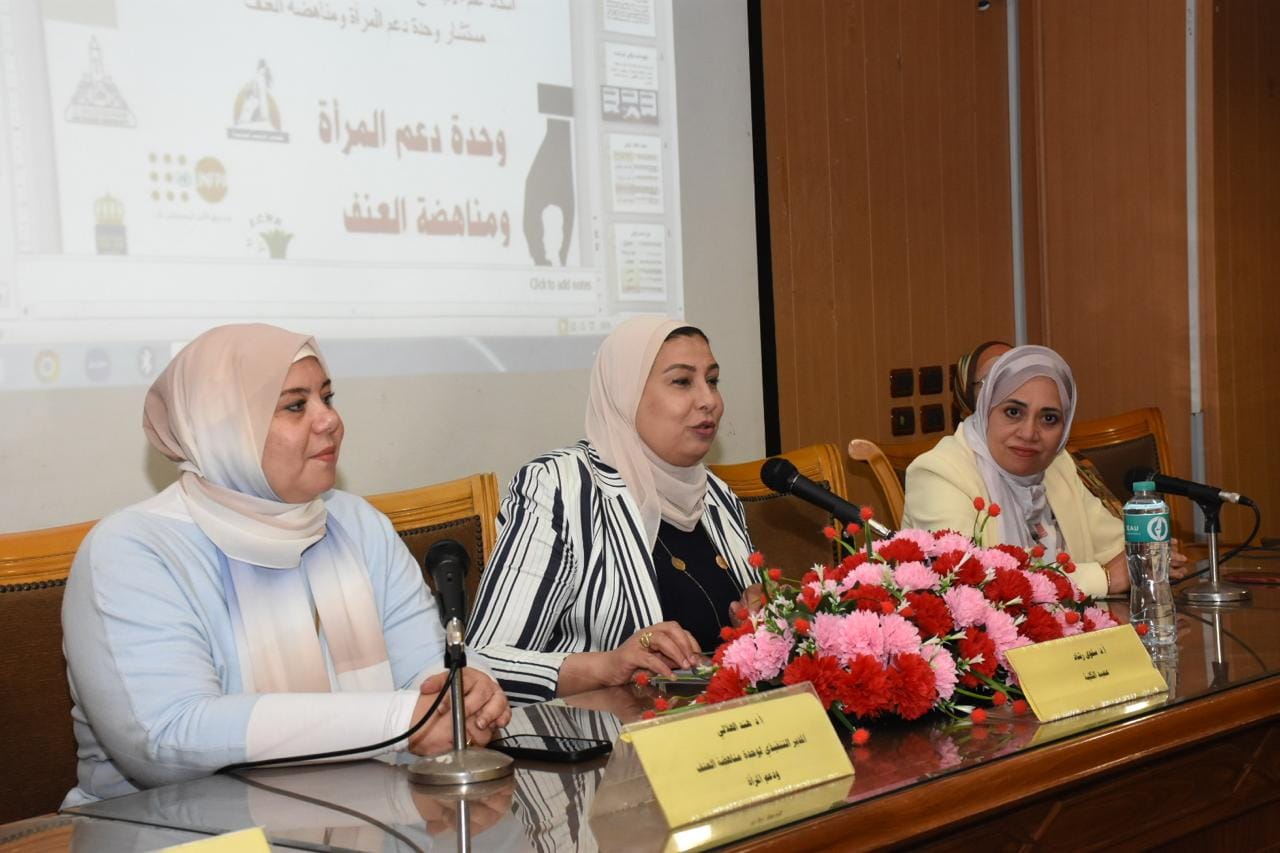 |
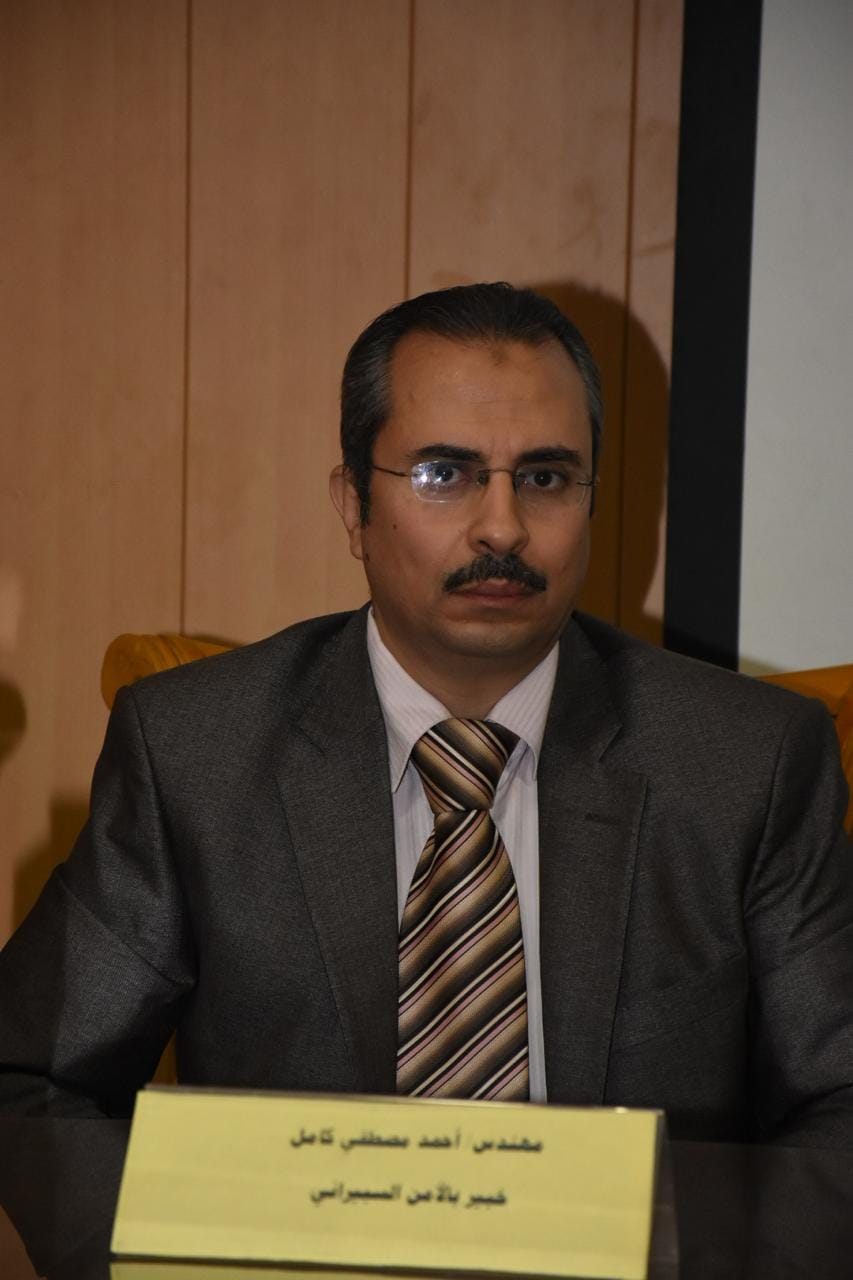 |
||
Prof. Yomna Safwat, Vice Dean of the Faculty for Community Service and Environmental Development Affairs, also confirmed that the initiatives launched by the university aim to spread security in society, and is one of the priorities followed by the university through the Women's Support and Anti-Violence Unit, noting that the university's main role is to build and refine the student's personality, not only by providing him with academic materials, but also through seminars and events that provide him with a lot of information that shapes his future personality after graduation, and personal information has always been of utmost importance and must be preserved in light of the digital acceleration and technological development that we are witnessing today. The issue of confronting digital breaches has become a matter that the university must discuss and publish mechanisms and methods for confronting it and ways to behave properly if someone is exposed to falling into the trap of information breaches via social media.
Prof. Hend El-Helaly, Director of the Women's Support and Anti-Violence Unit, stressed that Egyptian society needs to be restored in terms of realizing the father's leadership role and appreciating his efforts in providing a decent life for the family, in addition to the vital role of the mother who is the balance in the family and her role in caring for the family. Therefore, protecting women comes with the support of men and providing all means of care and defense for them, whether they are sisters, colleagues or wives. Therefore, the symposium targets university youth in general, young men and women.
The seminar aims to introduce students to how to deal with digital violence and how not to fall prey to some mentally ill people and use legal means to confront exposure to electronic violence, as well as to introduce the university's efforts and its role in protecting its students, and in the event of digital violence to someone outside the university, the hotline available to deal with these electronic crimes can be contacted.
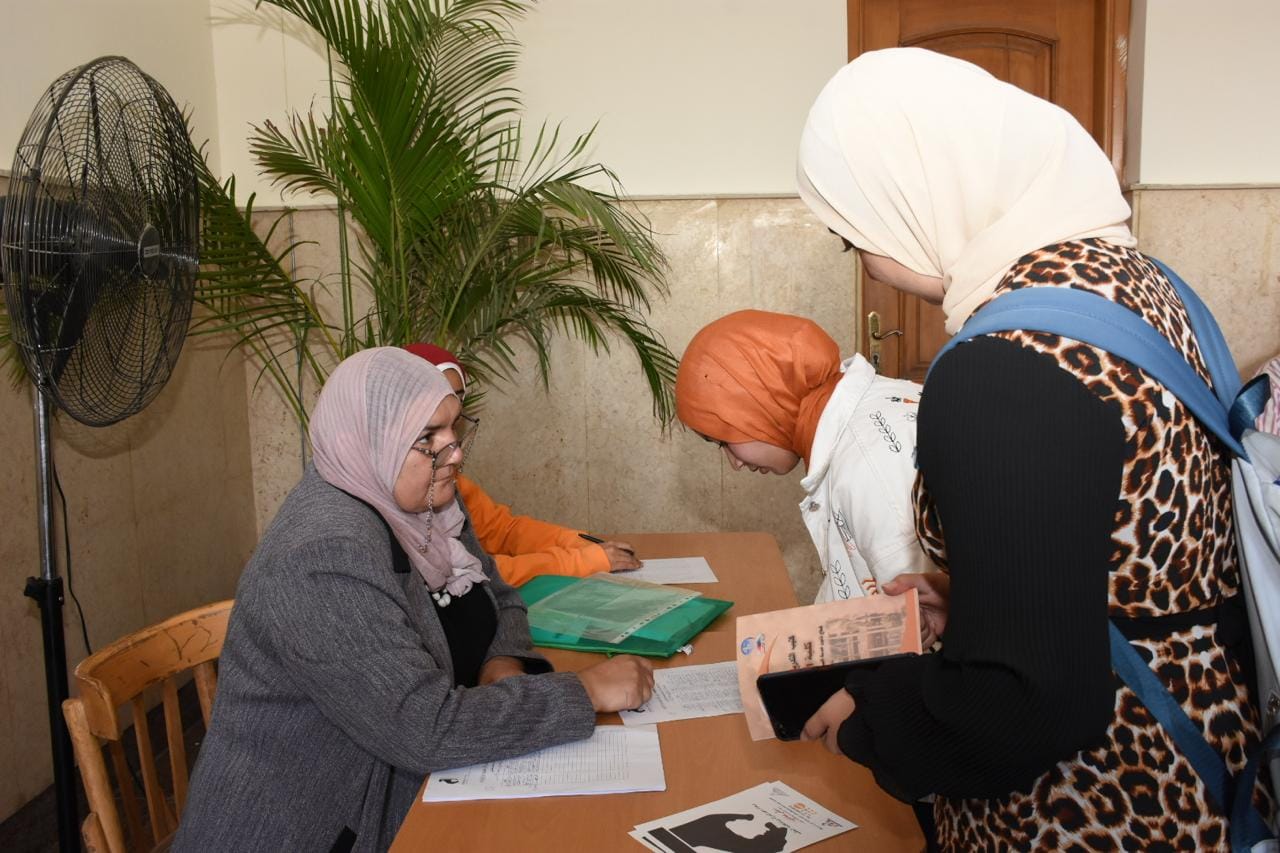 |
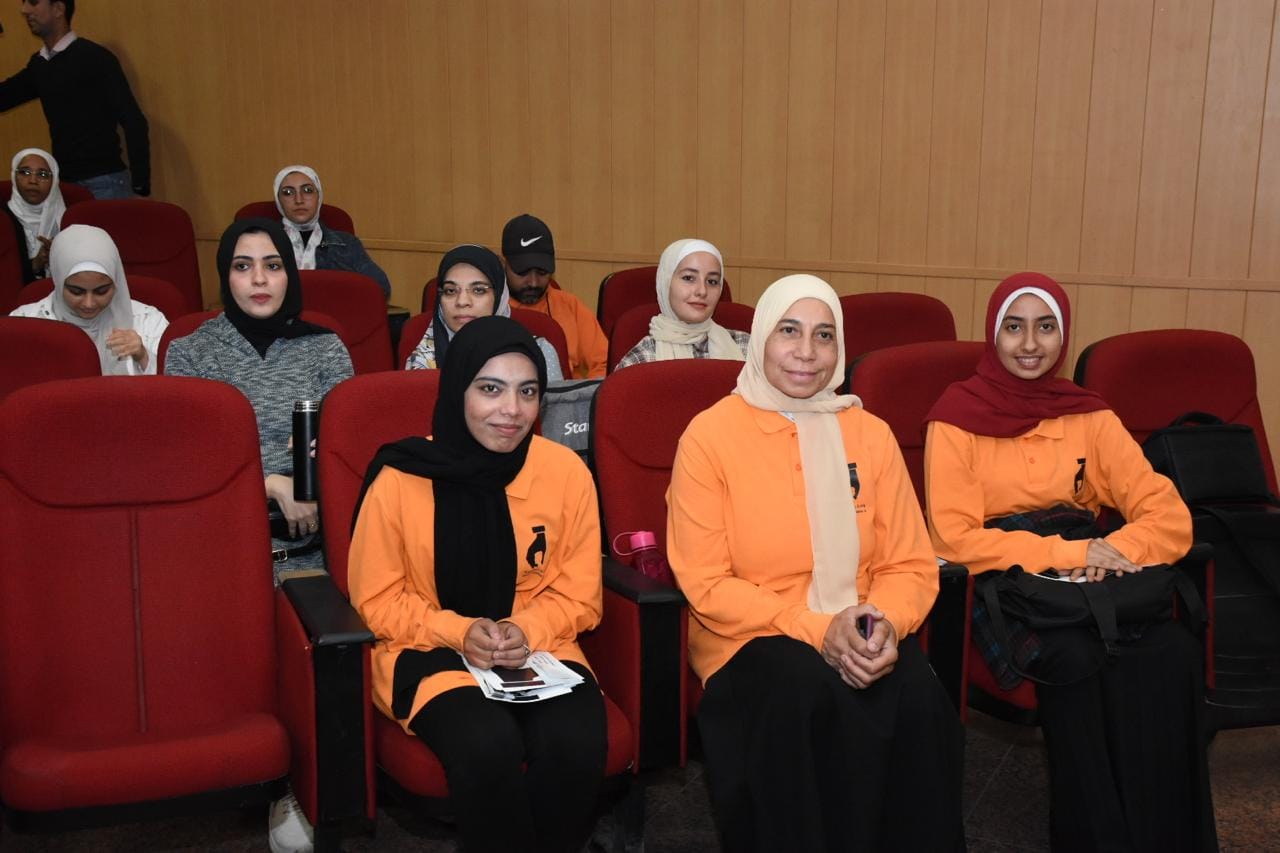 |
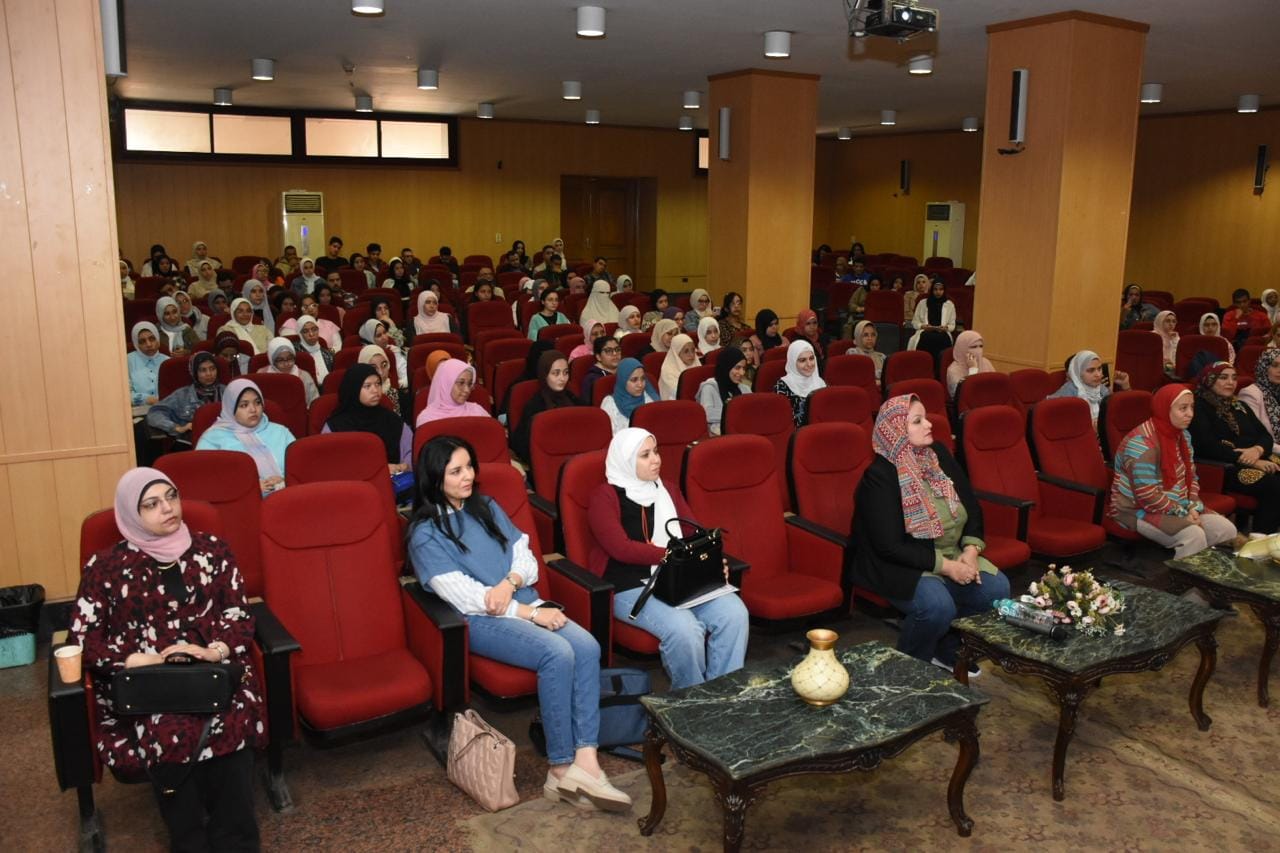 |
||
During the day's activities, Prof. Sohair Safwat, Professor of Sociology at the Faculty of Education, discussed a number of studies that confirm through their numbers that women use social media more, and therefore many measures must be taken to confront any digital violence they may be exposed to through social media platforms and electronic devices, and presented the characteristics of electronic violence, and indicated that electronic violence transcends time and space boundaries.
She reviewed the types of violence related to women and men and the social aspects that women face when dealing with electronic violence or bullying and its repercussions on women's psychology and how to confront it in an appropriate manner by documenting conversations that include acts of violence and calling the National Council for Women's hotline at 15115.
While Dr. Yousra Shaaban, lecturer in the Civil Law Department at the Faculty of Law, reviewed the legislative framework for digital violence in Egypt, in terms of the Law on Combating Information Technology Crimes No. 175 of 2018, its articles and the penalties imposed by the laws on those who exceed the limits of the law, the Personal Data Protection Law No. 151 of 2020, which aims to protect the right to privacy, and the Penal Code, which punishes verbal and electronic harassment.
She reviewed the steps and procedures that must be taken in the event of exposure to any personal or electronic blackmail by preserving evidence, notifying the competent authorities, securing electronic accounts and devices, and communicating with supporting entities, including the first unit at the level of Egyptian universities, the Women's Support and Anti-Violence Unit at Ain Shams University.
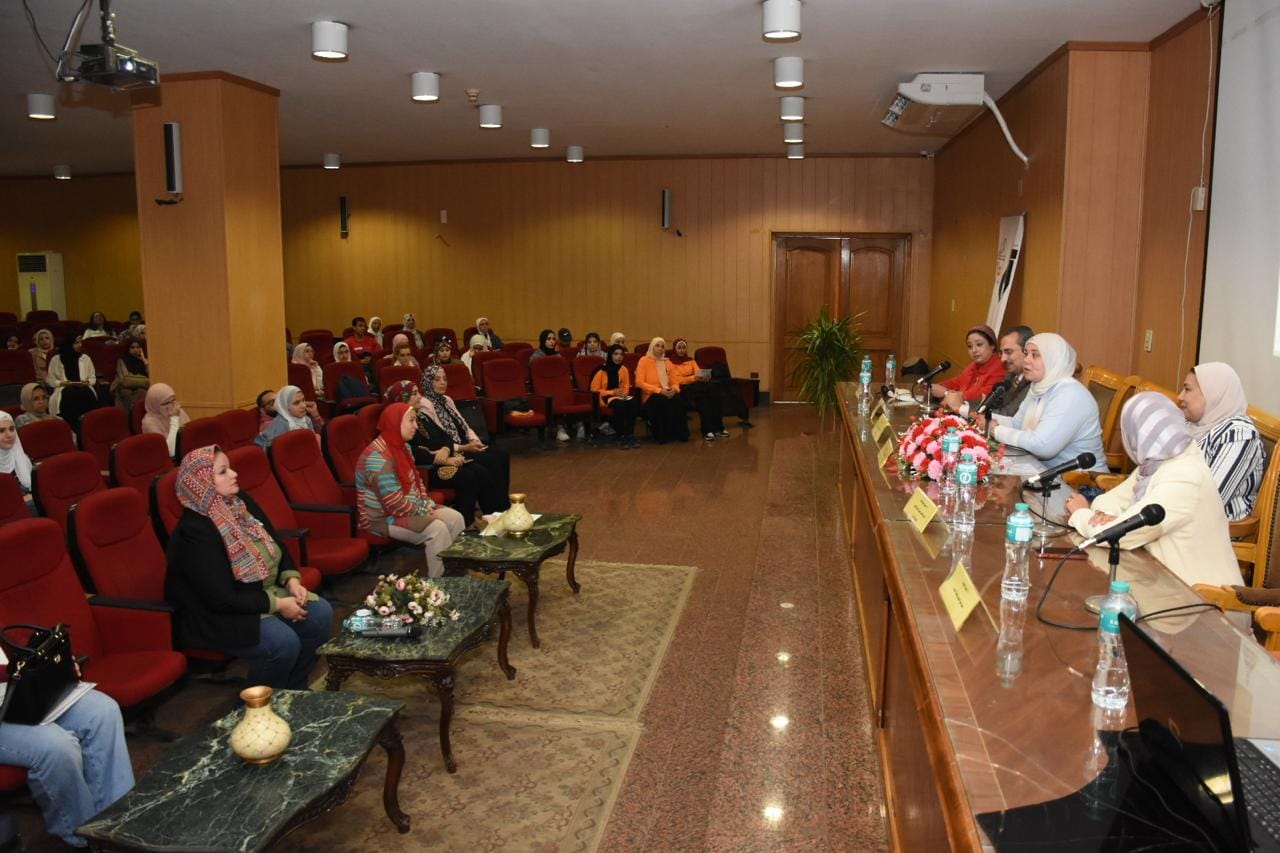 |
 |
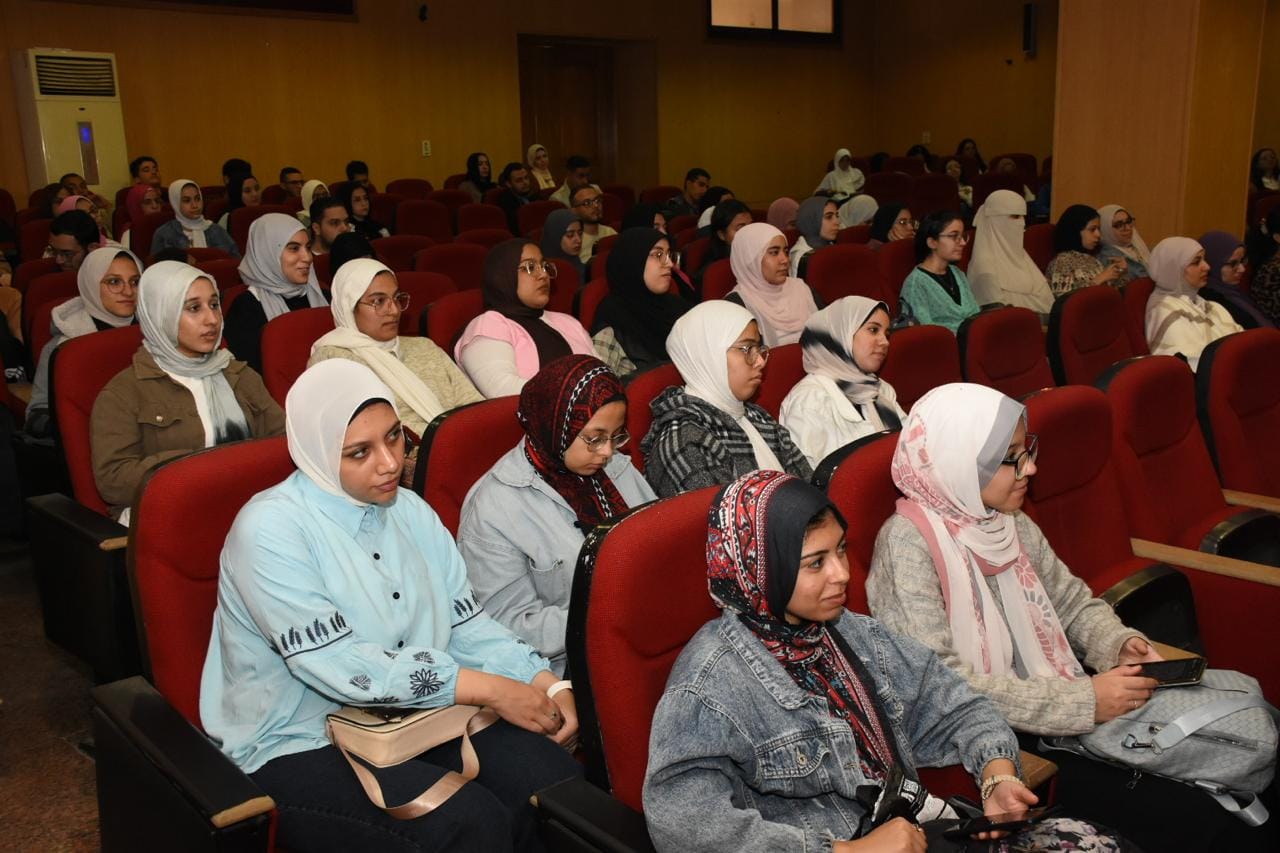 |
||
Engineer Ahmed Mustafa, Communications Engineer at the Egyptian National Media Authority, defined cyber security as preventing unauthorized access to information, changing it, damaging it, or blackmailing its owner through it, as cyber-attacks work through spying, obtaining information, obtaining money, or requesting a return of data or in exchange for control. He stressed that publishing private photos on social media is not a mistake, but rather a danger, as artificial intelligence programs are capable today of creating fabricated photos and videos capable of destroying the Egyptian family if used incorrectly by hackers.
He reviewed how algorithms work, how they work, and how ads appear according to the user's interests, as well as the powers that we agree to by entering a site, and we do not realize their impact in the short term. He reviewed the virus of phishing messages and fraudulent links that are sent with a link attached, as it is a time bomb that allows its sender to completely hack the device. He warned against activating those links.


.svg)

